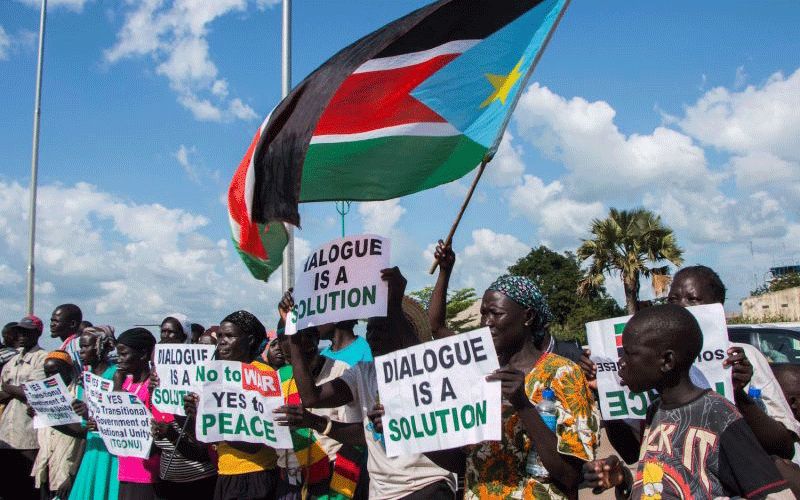Juba, 21 September, 2020 / 8:30 pm (ACI Africa).
On the occasion of the International Day of Peace marked Monday, September 21, which coincides with the second anniversary of the Revitalized Agreement on the Resolution of Conflict in South Sudan (R-ARCSS), representatives of various Christian denominations in South Sudan have, in a collective statement, noted “with great concern” the slow implementation of the R-ARCSS and expressed the need to “speed up the implementations of the provisions in the agreement.”
“It is with great concern that we observe the slow implementation of the peace agreement by all the signatories to the peace agreement,” representatives of the South Sudan Council of Churches (SSCC), which comprise seven member churches say in their collective statement dated Monday, September 21.
They highlight sections of the September 2018 document that was signed under the auspices of the Inter-Governmental Authority on Development (IGAD) and point out the negative effects of the delayed implementation.
“Chapter 1 and 2 are barely fully implemented; there are some pockets in the violations of ceasefire agreements, and the rampant inter communal revenge violence and cattle raiding, which continue to destabilize communities across the country,” they lament in the statement signed by SSCC representatives including the Catholic Metropolitan Archbishop of Juba, Stephen Ameyu.
In the statement shared with ACI Africa, the Church leaders say that the slow implementation of R-ARCSS “continues to deteriorate the already dire conditions of the ordinary South Sudanese.”








